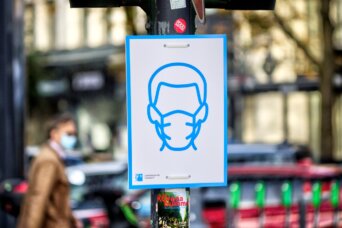- About
- Topics
- Picks
- Audio
- Story
- In-Depth
- Opinion
- News
- Donate
-
Signup for our newsletterOur Editors' Best Picks.Send
Read, Debate: Engage.
| topic: | Rule of Law |
|---|---|
| located: | Bosnia and Herzegovina |
| editor: | Katarina Panić |
It was half-past 8 in the evening on April 13 when police stopped a car in Prijedor in Bosnia. A man who was driving knew the curfew started half an hour ago, but he needed to get the ambulance. Police fined him. Instead of paying, a man decided to sue the Ministry of Interior due to freedom of movement violation. Last month the court made a final rule in his favour.
The court found the decision on curfew was imposed by the Emergency Management Staff, which is not a state body, but one that has an advisory role only. It is not in charge of enacting bans and bringing penalties. The Emergency Management Staff may only suggest solutions to formal state bodies that are in charge of these kinds of measures, such as the Ministry of Interior or the government in a whole.
Instead of admitting the mistake and accepting the verdict, the government of Republika Srpska, one of the three administrative units in Bosnia, directed its anger at the court and the judge.
"Let the judge in question then take responsibility for the health of the people and citizens of Srpska, so let him prescribe measures and say how to work. We will send our health workers on vacation because they deserved it, so let that judge then treat the patients with coronavirus," the Republika Srpska Prime Minister Radovan Višković told local media.
Unlike the car mechanic from Prijedor, many people in Bosnia paid the fines that range from 500 to 1,500 BAM (€250 to €750). The average salary in the country is less than BAM 1,000 (€500). Ever since the initial curfew was imposed all over the country, human rights activists and lawyers have called people to address the courts since it was the only way to be relieved of liability. However, hardly anyone could believe people could win in the David-versus-Goliath race, keeping in mind the general perception that the authorities control the judiciary entirely.
In another administrative unit, the Federation of Bosnia and Herzegovina, the constitutional court found the curfew violated the freedom of movement too. A lawyer Nina Kisić reminds the curfew has to be imposed by following the law, and it has to have justified reasons.
"The head of the Federal Department of Civil Protection stated that the curfew was introduced due to the disturbing security situation. Many shops, cafes and other facilities stopped working, so there were robberies and thefts. It is obvious it was not about to protect the nation's health, but completely different reasons," she told local media.
On the eve of new lockdowns, will the state learn the lessons from its own mistakes?
Image by Elchinator

